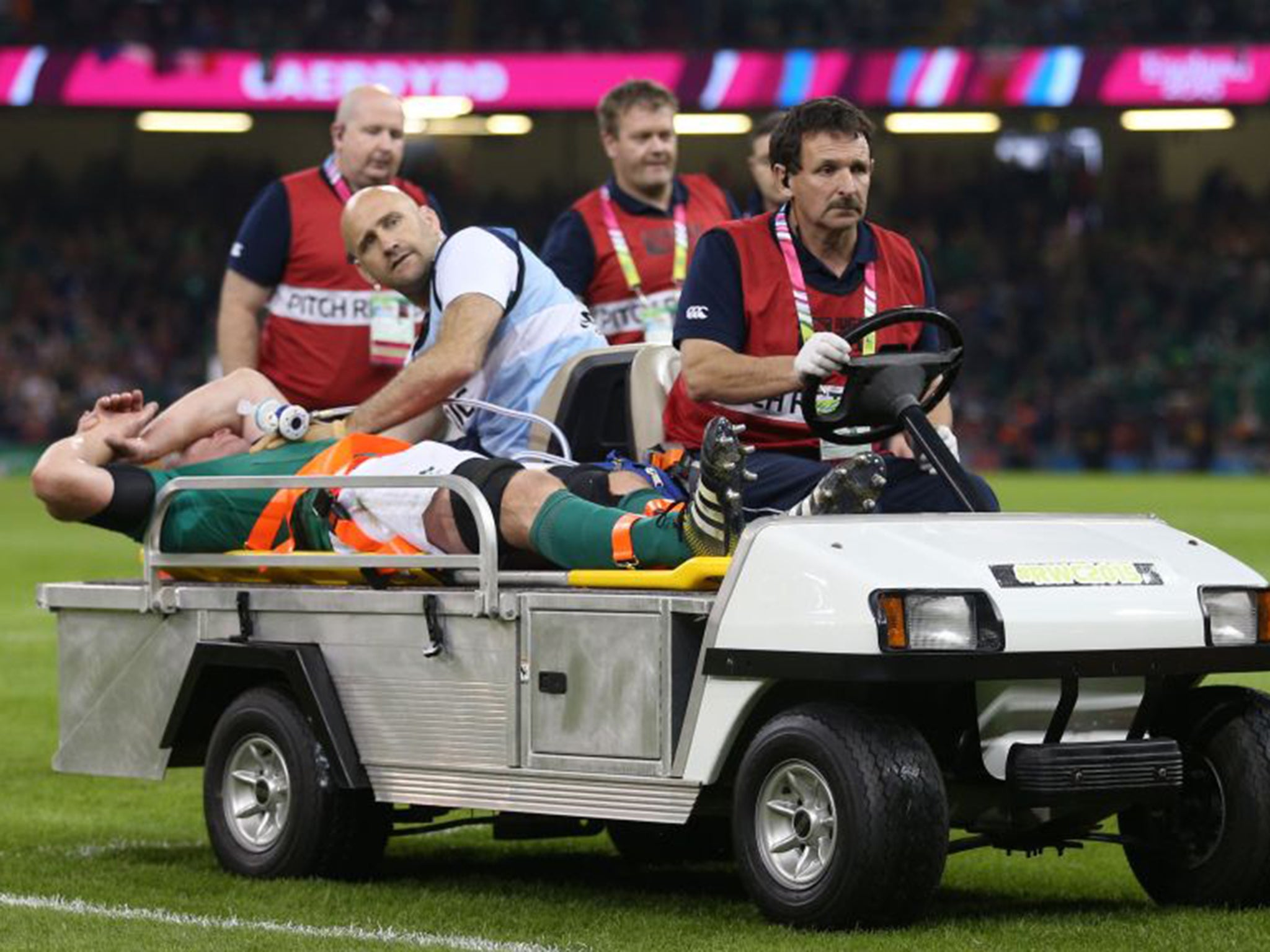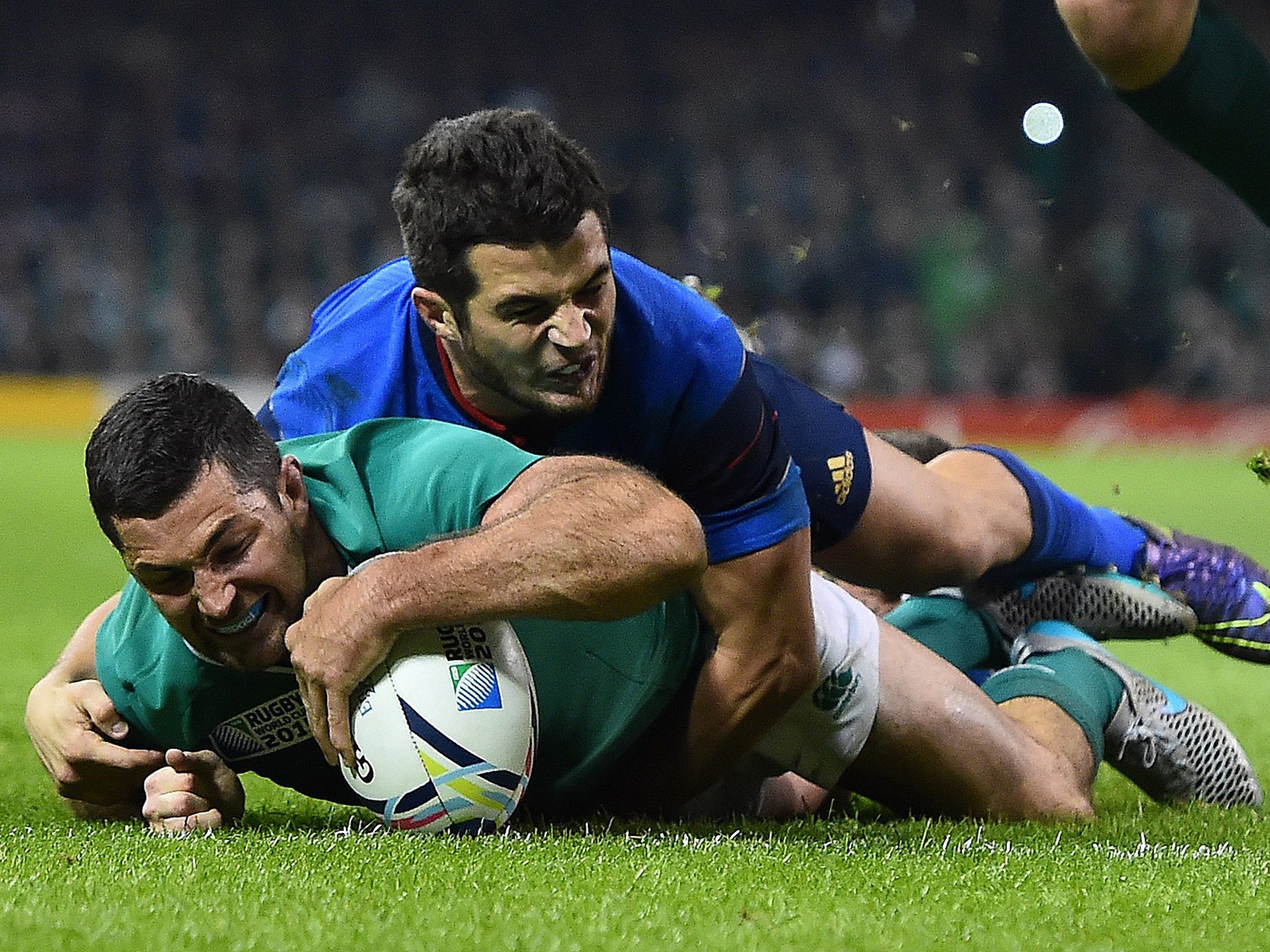RWC 2015: Injuries could ruin Ireland’s World Cup, says Rob Kearney
Full-back bemoans player losses while flanker Sean O’Brien waits for ruling after his punch

Your support helps us to tell the story
From reproductive rights to climate change to Big Tech, The Independent is on the ground when the story is developing. Whether it's investigating the financials of Elon Musk's pro-Trump PAC or producing our latest documentary, 'The A Word', which shines a light on the American women fighting for reproductive rights, we know how important it is to parse out the facts from the messaging.
At such a critical moment in US history, we need reporters on the ground. Your donation allows us to keep sending journalists to speak to both sides of the story.
The Independent is trusted by Americans across the entire political spectrum. And unlike many other quality news outlets, we choose not to lock Americans out of our reporting and analysis with paywalls. We believe quality journalism should be available to everyone, paid for by those who can afford it.
Your support makes all the difference.Ireland may have been too hot for the French to handle in Cardiff on Sunday night, but their joyous mood quickly evaporated in the cold light of day when Peter O’Mahony and Sean O’Brien, the two first-choice flankers, received the news they had been dreading. O’Mahony’s tournament is over because of a knee injury, while O’Brien must appear before a judicial officer this afternoon on a charge of punching.
Five days before their World Cup quarter-final against Argentina, a match they would fancy themselves to win at full strength, the Six Nations champions are now in a state of flux. Paul O’Connell, their captain, seems certain to follow O’Mahony out of the competition – he spent a night in hospital undergoing treatment on what was described as a “significant” hamstring problem – and there was also concern over Jonathan Sexton’s immediate prospects, the outside-half having suffered a groin strain just 25 minutes into the France game.

“The injuries do take the gloss off the victory,” confessed Rob Kearney, the Leinster full-back who scored the first of Ireland’s two tries at the Millennium Stadium. “You never like to lose players through injury, especially ones of this calibre. But when you are in a tournament where the physicality is so great, you know other teams are suffering too.”
Asked whether O’Connell now feared the worst, Kearney replied: “Yes, he probably does. There’s not much I can say here, in the next 30 seconds, that gives testament to his contribution to Irish rugby: if he’s ruled out, it’s going to be a monumental loss. He’s looked as though he’s been really enjoying his rugby and when it’s like that, guys get the best out of themselves. If he can’t continue in this tournament, it will be massively disappointing.”
O’Brien’s disciplinary citing was widely anticipated: video footage shows him thumping Pascal Papé in the chest in the opening moments of Sunday’s contest, leaving the French lock in need of prolonged treatment. If there was any kind of silver lining for the Irish camp, it came with the news that their next opponents might lose the goal-kicking centre Marcelo Bosch to suspension. The Pumas midfielder must also answer a disciplinary charge, this one relating to dangerous tackling during the comprehensive victory over Namibia at the weekend.
With Wales, another of this weekend’s quarter-finalists, suffering even more orthopaedic strife than Ireland, leading figures from World Rugby, the sport’s international governing body, were pressed hard on the extent of the casualty list at this tournament. But when Brett Gosper, the organisation’s chief executive, was asked whether the levels of physicality were fast becoming unsustainable, he argued against leaping to conclusions.
“Our early indications are that England 2015 is not tracking any differently to other tournaments in the past,” he said. “Let’s wait until the tournament is over before conducting a full analysis. We want to make sure it’s evidence based rather than emotion based, because player welfare is our No 1 priority.”
Gosper went on to describe the quality of the pool stage as “breathtaking”, reporting that more than £200m had been generated in ticket sales and that, along with stadium audiences totalling 1.8 million, more than 750,000 supporters had attended official “fanzones” in towns and cities up and down the country. He also said that he was not “getting any sense of a stutter in interest” as a result of England’s early departure from their own tournament.
Join our commenting forum
Join thought-provoking conversations, follow other Independent readers and see their replies
Comments